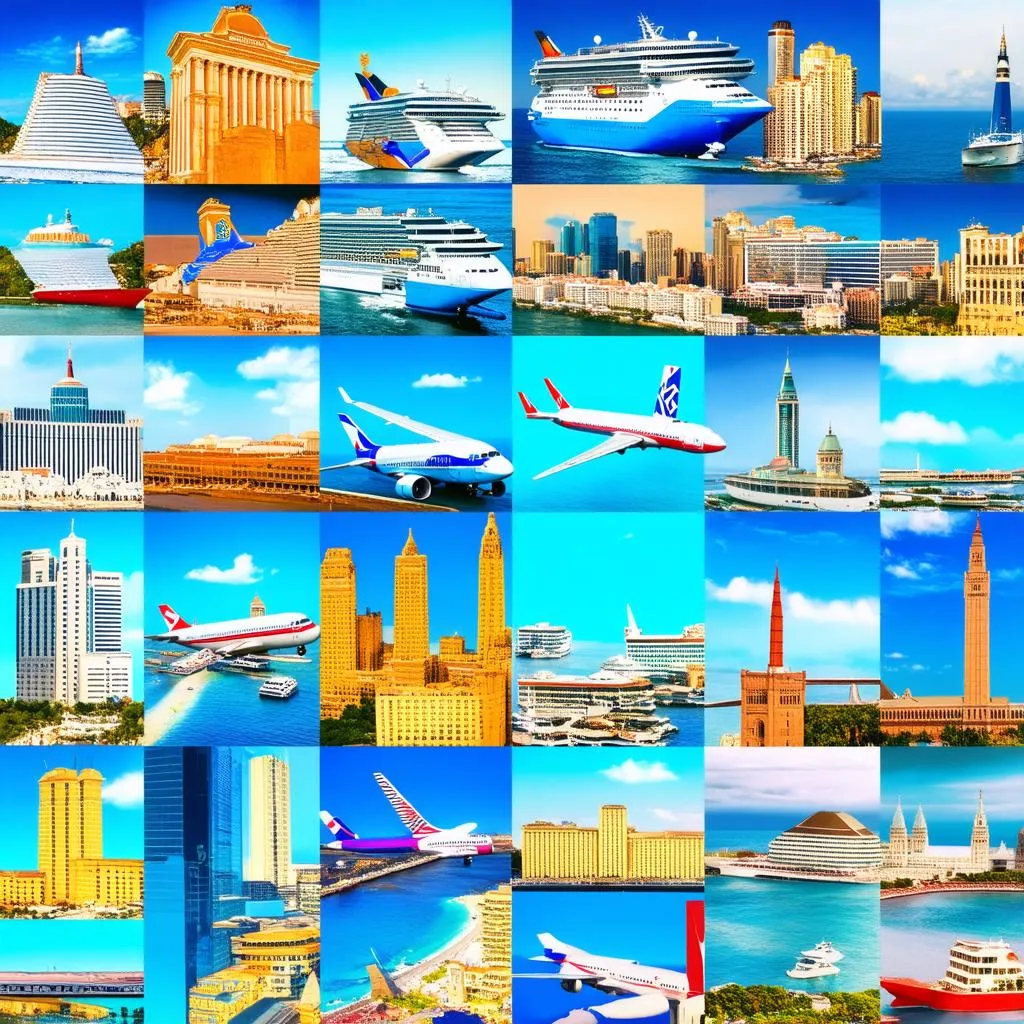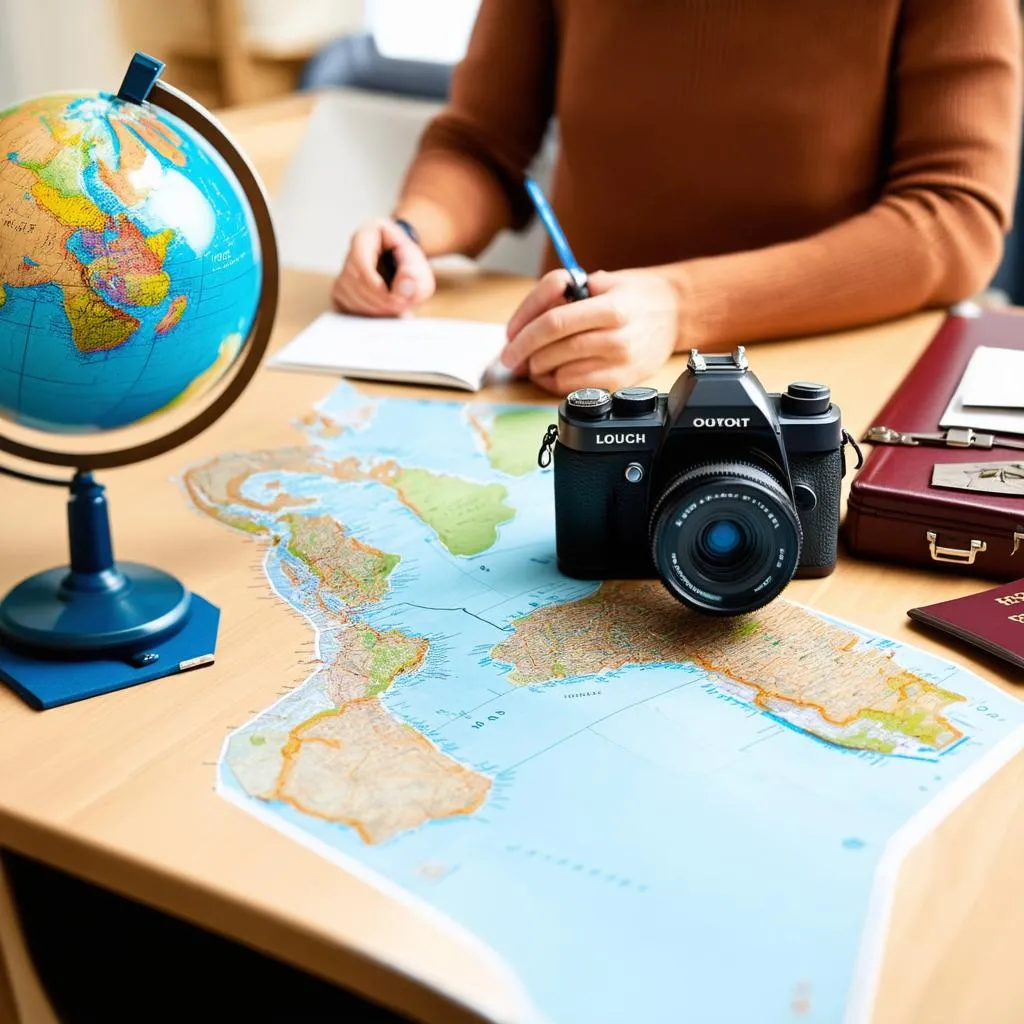Have you ever dreamed of traveling the world, experiencing new cultures, and making a living from it? The tourism industry offers a plethora of opportunities for those with wanderlust in their hearts and an entrepreneurial spirit. From bustling city tours to serene eco-adventures, the world of tourism business sectors is vast and brimming with potential.
What are the Different Tourism Business Sectors?
The tourism industry is like a vibrant tapestry, woven together by various interconnected sectors, each contributing to a seamless travel experience. Here are some of the key players:
1. Accommodation
This sector forms the backbone of tourism, providing a home away from home for travelers.
- Hotels: Ranging from budget-friendly options to luxurious five-star establishments like the Burj Al Arab in Dubai, hotels cater to diverse needs and budgets.
- Resorts: Often located in scenic destinations like the Maldives or the Swiss Alps, resorts offer a more immersive experience with amenities such as spas, golf courses, and on-site restaurants.
- Vacation Rentals: Platforms like Airbnb have revolutionized the way people travel, offering unique and often more affordable accommodation options, like staying in a traditional Riad in Marrakech, for example.
2. Transportation
Getting travelers from point A to point B is crucial.
- Airlines: International giants like Emirates and local carriers alike connect travelers across continents and countries.
- Railways: Scenic train journeys, like the Trans-Siberian Railway, offer a unique way to traverse vast distances while soaking in breathtaking landscapes.
- Cruise Lines: From massive ships with water parks and theaters to smaller, more intimate river cruises along the Danube, cruises offer a floating resort experience.
- Car Rentals: Providing flexibility and freedom to explore destinations at one’s own pace, car rental companies like Hertz and Avis are essential for independent travelers.
3. Food and Beverage
No travel experience is complete without indulging in local flavors.
- Restaurants: From Michelin-starred restaurants to street food stalls, the culinary landscape of a destination is a significant part of its appeal.
- Bars and Clubs: Offering nightlife and entertainment, these establishments cater to travelers seeking social experiences.
4. Attractions and Activities
What makes a destination memorable are the experiences it offers.
- Historical Sites: Ancient wonders like the Colosseum in Rome or the Taj Mahal in India offer glimpses into the past and attract history buffs from around the globe.
- Museums and Art Galleries: Showcasing art, history, and culture, museums like the Louvre in Paris or the Metropolitan Museum of Art in New York City provide enriching experiences.
- Theme Parks: Adrenaline-pumping rides, entertaining shows, and immersive experiences draw crowds to theme parks like Disneyland or Universal Studios.
- Adventure Tourism: Activities like hiking in the Himalayas, scuba diving in the Great Barrier Reef, or bungee jumping in New Zealand cater to thrill-seekers.
5. Tour Operators
These are the architects of travel experiences.
- Tour Operators: Companies like Trafalgar or Intrepid Travel design and organize packaged tours, taking care of flights, accommodation, and itineraries for travelers.
- Travel Agencies: Local travel agents provide personalized recommendations, book flights and accommodations, and offer valuable insights into destinations.
Navigating the Tourism Landscape: Tips and Insights
Planning Your Dream Trip?
Here’s a step-by-step guide:
- Destination Selection: Where does your heart yearn to go? Consider your interests, budget, and time constraints.
- Budgeting: Research the average costs of accommodation, food, transportation, and activities in your chosen destination.
- Itinerary Creation: Plan your must-see attractions, desired activities, and leave room for spontaneity.
- Booking: Secure your flights, accommodation, and any tours or activities in advance, especially during peak season.
Things to Consider:
- Travel Insurance: Protect yourself against unforeseen circumstances with comprehensive travel insurance.
- Visa Requirements: Research the visa regulations for your destination and ensure your passport has sufficient validity.
- Local Customs and Etiquette: Respect the local culture by dressing appropriately, learning a few basic phrases, and being mindful of customs.
FAQs about the Tourism Industry
Q: Is the tourism industry profitable?
A: Yes, the tourism industry is a significant contributor to the global economy, generating trillions of dollars annually.
Q: What are the current trends shaping the tourism industry?
A: Sustainable tourism, experiential travel, and the rise of digital nomads are some key trends influencing the industry.
Q: What are the challenges faced by the tourism industry?
A: Overtourism, environmental concerns, and political instability in certain regions pose challenges to the industry.
Travelcar.edu.vn: Your Gateway to Tourism Knowledge
For in-depth insights, industry news, and resources to navigate the exciting world of tourism, visit travelcar.edu.vn.
 Tourism Sectors
Tourism Sectors
 Travel Planning
Travel Planning
Conclusion
The tourism industry is a dynamic and ever-evolving landscape, offering a myriad of opportunities for both travelers and entrepreneurs. By understanding the diverse sectors and embracing responsible tourism practices, we can ensure sustainable growth and unforgettable travel experiences for generations to come.